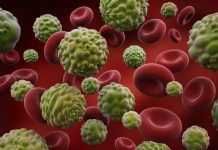 A common assumption in regard to the different cancers is that hereditary genes are the biggest factor and that environment and economic issues play a very small part in assessing people’s risks. [Gene therapy]
A common assumption in regard to the different cancers is that hereditary genes are the biggest factor and that environment and economic issues play a very small part in assessing people’s risks. [Gene therapy]
However, a study looking at disparities between races pertaining to cancer survival rates in Michigan seems to suggest otherwise.
Jaymie R. Meliker, of the Stony Brook University in New York has examined data covering a seven year period, of well over two hundred thousand cancer sufferers.
Gathered by the Michigan Cancer Surveillance Program, the information is evenly split between breast and prostate cancer.
Such a big sample of statistics covering a log period of time is always regarded as more likely to show definite patterns. What Meliker has found is that disparity between black and white citizens is hardly noticeable in a small demographic, for example a neighborhood or district. Once this scale increases into a larger urban population then difference can be clearly seen.
This would suggest that factors like unemployment, access to health care and other changeable issues are more likely the cause of a greater risk amongst the black population.
In other words, genetics can’t just explain away the fact that white people’s survival rates are considerably higher in cities and larger disenfranchised areas.
Obviously more research will be required to test this theory further but the days of sweeping inequality under the table of genetics seems to be on the way out. The gap between how long different racial groups survive breast or prostate cancer must be tackled.














